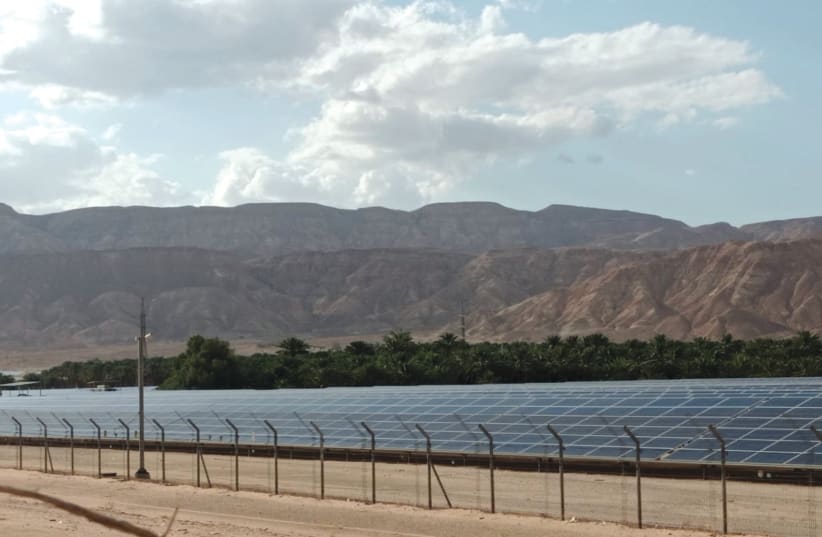Prominent among Israel’s massive hi-tech sphere are thousands of innovative companies with a huge impact on environmental protection, from sustainable energy sources to reusable diapers. As the world marks Earth Day, here is a look at some of the country’s many prominent leaders and developments:
Israel’s long-term environmental plan
Earlier this week, Israel announced the launch of its new 30-year environmental plan, which aims to reduce greenhouse gas emissions by 80% by 2050. Among the targets of the program are a commitment to close all coal plants by 2025, which would represent the fastest pace of coal reduction in the world.
It also aims to reduce greenhouse-gas emissions in the electricity sector by 75% to 85% by 2050, as well as improve its energy intensity index (energy consumption per unit of product) by 1.3% per year. These targets are twice as ambitious as the commitments made by Israel at the 2015 Paris Agreement on climate change, something made possible by technological improvements since then, according to Energy Minister Yuval Steinitz.
Solar energy
Israel is a leader in solar energy technologies. The country has a lot of sun, but not a lot of area for massive solar fields, and is reportedly in talks with neighboring Arab nations to cooperate on solar energy projects. Some of Israel’s largest publicly-traded companies include SolarEdge, which optimizes solar energy systems to harvest more power, and BrightSource, which develops solar thermal technology and power stations.
Water leak detection
Rosh Ha’ayin-based Utilis provides technology for governments and water corporations around the world that allows them to detect underground water leaks. The company’s technology uses satellite signals to detect suspicious points of water leakage, sewage, drainage faults and water accumulation in the ground. The company says that 20% of all drinking water in Europe and the US is lost in distribution systems, resulting in the loss of some 46 billion liters of water per day. Utilis’s solution is used in more than 400 projects in 55 countries worldwide, locating more than 30,000 significant leaks in water systems.
Water Investment
Israeli venture capital company OurCrowd recently partnered with Waterfund, a global water investment and trading firm, to build a dedicated investment portfolio of 15 leading water and agricultural tech companies. They are also developing a water-focused financial product platform called Aquantos to enable water projects in the Middle East to acquire leading technologies to address water scarcity in a fundamentally new way, OurCrowd said.
Crop management
How is it that neighboring fields – with identical climates, cultivated by the same farmer, with the same seeds, fertilizers and irrigation – produce widely varied yields, sometimes dozens of percentage points apart? Tel Aviv-based Prospera uses machine-learning algorithms and botany to reinvent agricultural data usage and help farmers grow crops more efficiently. The company’s technology uses climate and visual data from the field to monitor and predict plant health and development, and provides actionable value to farmers via their mobile phones and the web.
Green thermoplastic manufacturing
UBQ Materials uses advanced conversion technology to transform household waste into new raw manufacturing materials. Plastic packaging, food waste and more can be converted into sustainable, bio-based materials to be used for the manufacturing of thousands of products. The new material is clean, sustainable, cost-effective and is the greenest thermoplastic material on the planet, the company claims.
Easy disposable diapers
Abandoning disposable diapers in favor of reusable ones is a great way for parents to help fight pollution. Some 250 billion diapers are thrown away every year, and it can take as much as 500 years for them to fully biodegrade. Cloth diapers are cheaper to use and environmentally friendly, but the effort required to store and then wash dirty diapers is just about the last thing that busy parents want to worry about. Pika Diapers, created by Tel Aviv entrepreneur Alon Cohen shortly after he became a dad, is a self-contained storage and washing system that makes it easy to reuse cloth diapers with just a few simple steps.
